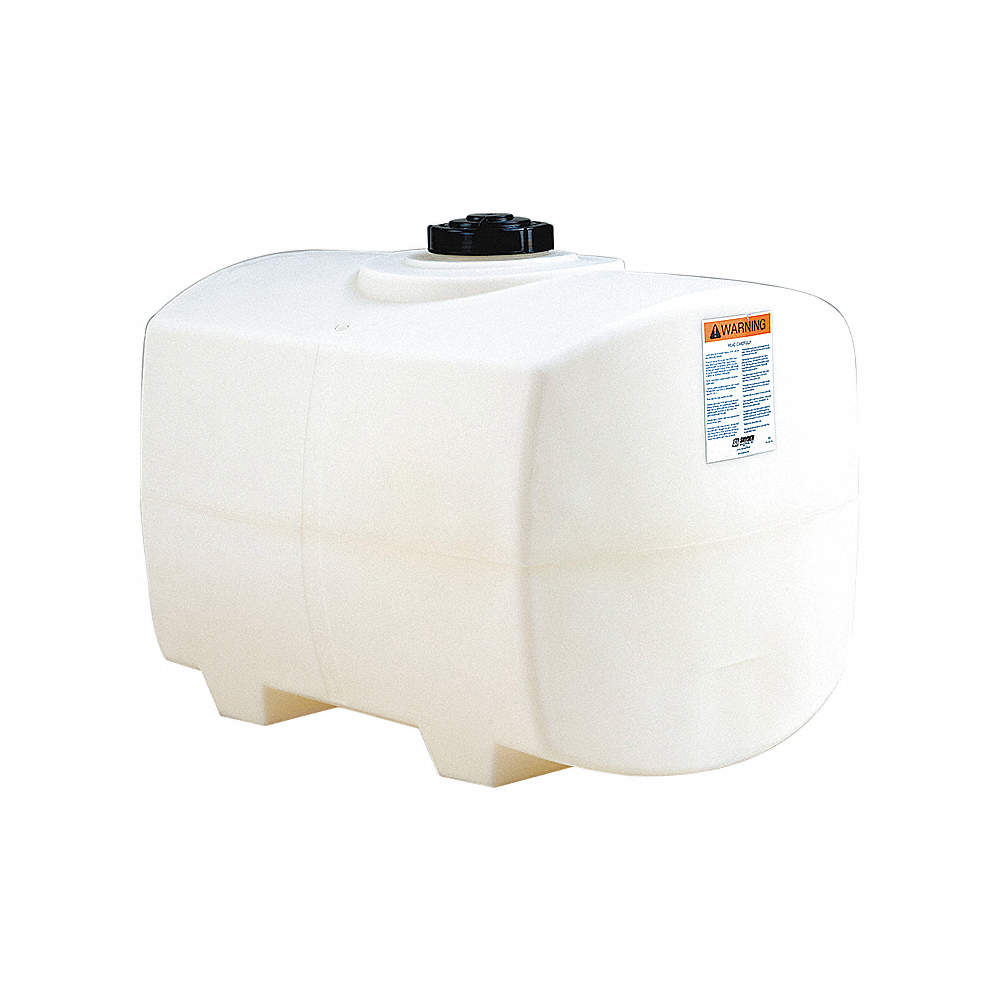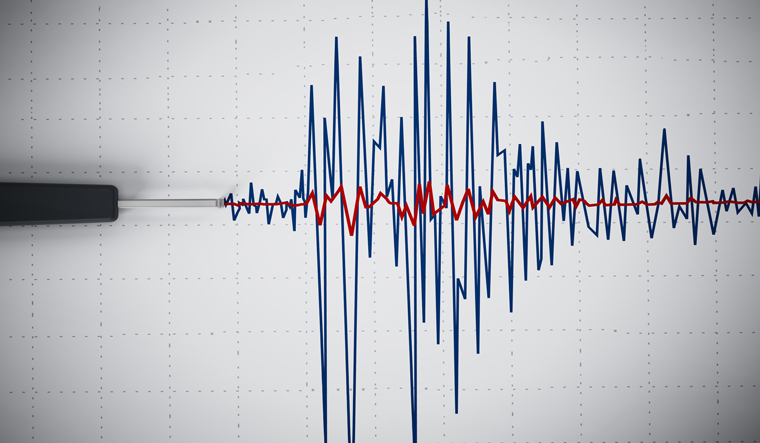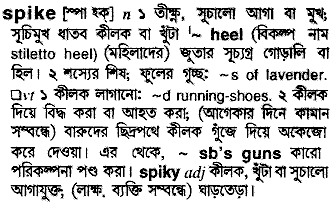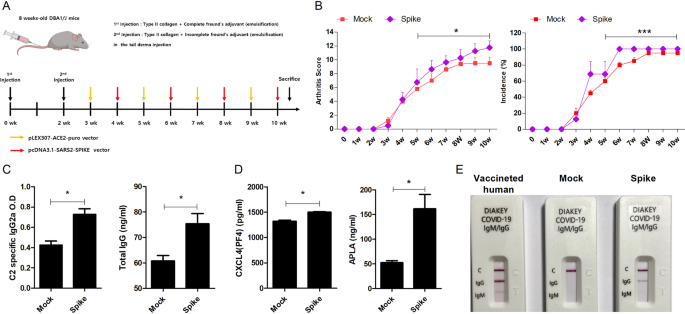SARS-CoV-2 spike protein promotes inflammatory cytokine activation
4.6 (135) · $ 27.99 · In stock
Background Coronavirus disease 2019 (COVID-19) induces inflammation, autoantibody production, and thrombosis, which are common symptoms of autoimmune diseases, including rheumatoid arthritis (RA). However, the effect of COVID-19 on autoimmune disease is not yet fully understood. Methods This study was performed to investigate the effects of COVID-19 on the development and progression of RA using a collagen-induced arthritis (CIA) animal model. Human fibroblast-like synoviocytes (FLS) were transduced with lentivirus carrying the SARS-CoV-2 spike protein gene in vitro, and the levels of inflammatory cytokine and chemokine expression were measured. For in vivo experiments, CIA mice were injected with the gene encoding SARS-CoV-2 spike protein, and disease severity, levels of autoantibodies, thrombotic factors, and inflammatory cytokine and chemokine expression were assessed. In the in vitro experiments, the levels of inflammatory cytokine and chemokine expression were significantly increased by overexpression of SARS-CoV-2 spike protein in human FLS. Results The incidence and severity of RA in CIA mice were slightly increased by SARS-CoV-2 spike protein in vivo. In addition, the levels of autoantibodies and thrombotic factors, such as anti-CXC chemokine ligand 4 (CXCL4, also called PF4) antibodies and anti-phospholipid antibodies were significantly increased by SARS-CoV-2 spike protein. Furthermore, tissue destruction and inflammatory cytokine level in joint tissue were markedly increased in CIA mice by SARS-CoV-2 spike protein. Conclusions The results of the present study suggested that COVID-19 accelerates the development and progression of RA by increasing inflammation, autoantibody production, and thrombosis. Video Abstract

Pyroptotic cell death in SARS-CoV-2 infection: revealing its roles during the immunopathogenesis of COVID-19
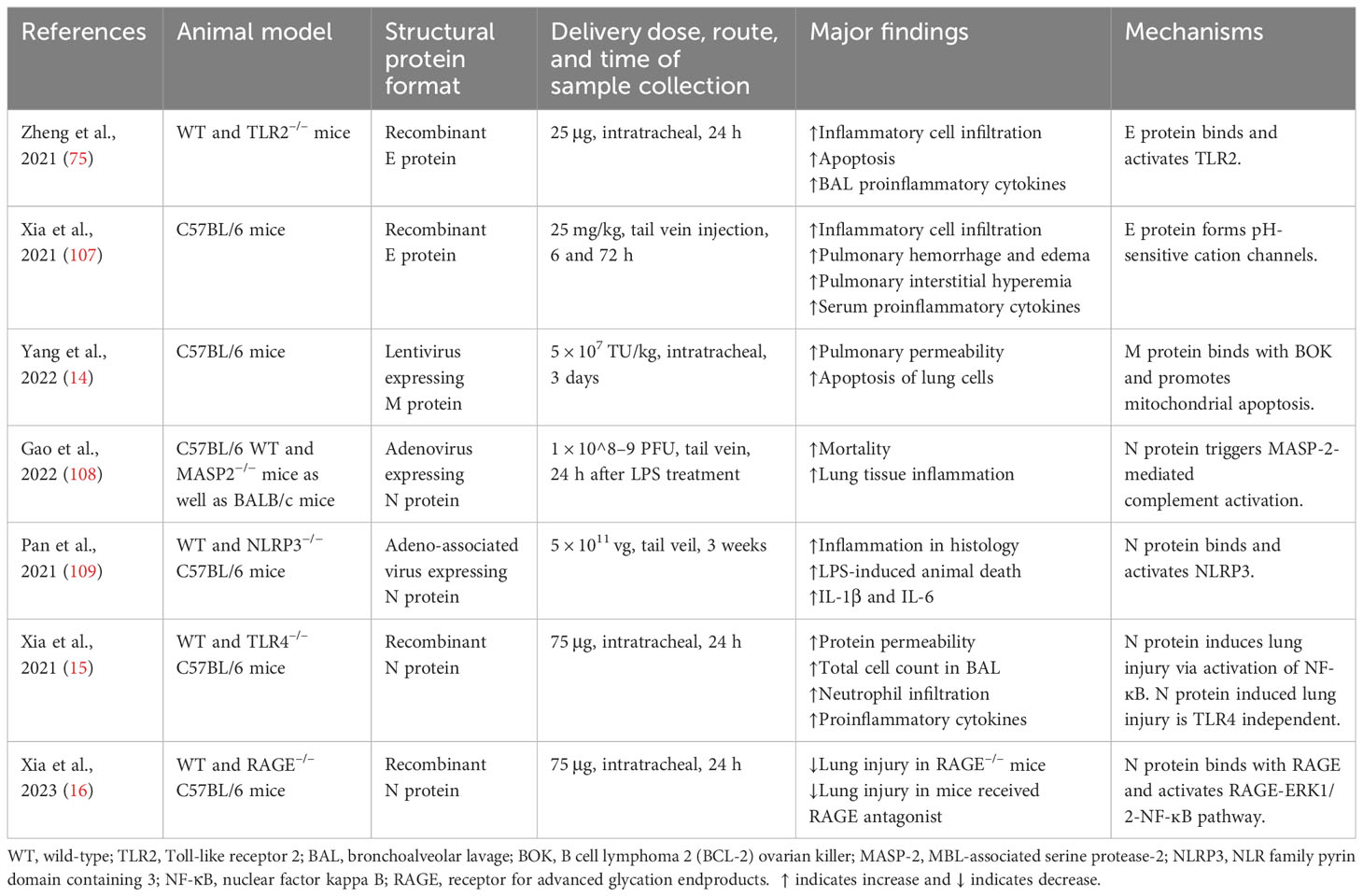
Frontiers Multifaceted role of SARS-CoV-2 structural proteins in

Immunofluorescence staining of CXLC4 and CXCL7 in synovial tissue

Potential mechanisms of SARS-CoV-2-induced immunopathology. a The

Heparanase is the possible link between monkeypox and Covid-19: robust candidature in the mystic and present perspective, AMB Express

PDF) SARS-CoV-2 spike protein promotes inflammatory cytokine
SARS-CoV-2 spike protein promotes IL-6 trans-signaling by

SARS-CoV-2 Spike protein is not pro-inflammatory in human primary macrophages: endotoxin contamination and lack of protein glycosylation as possible confounders
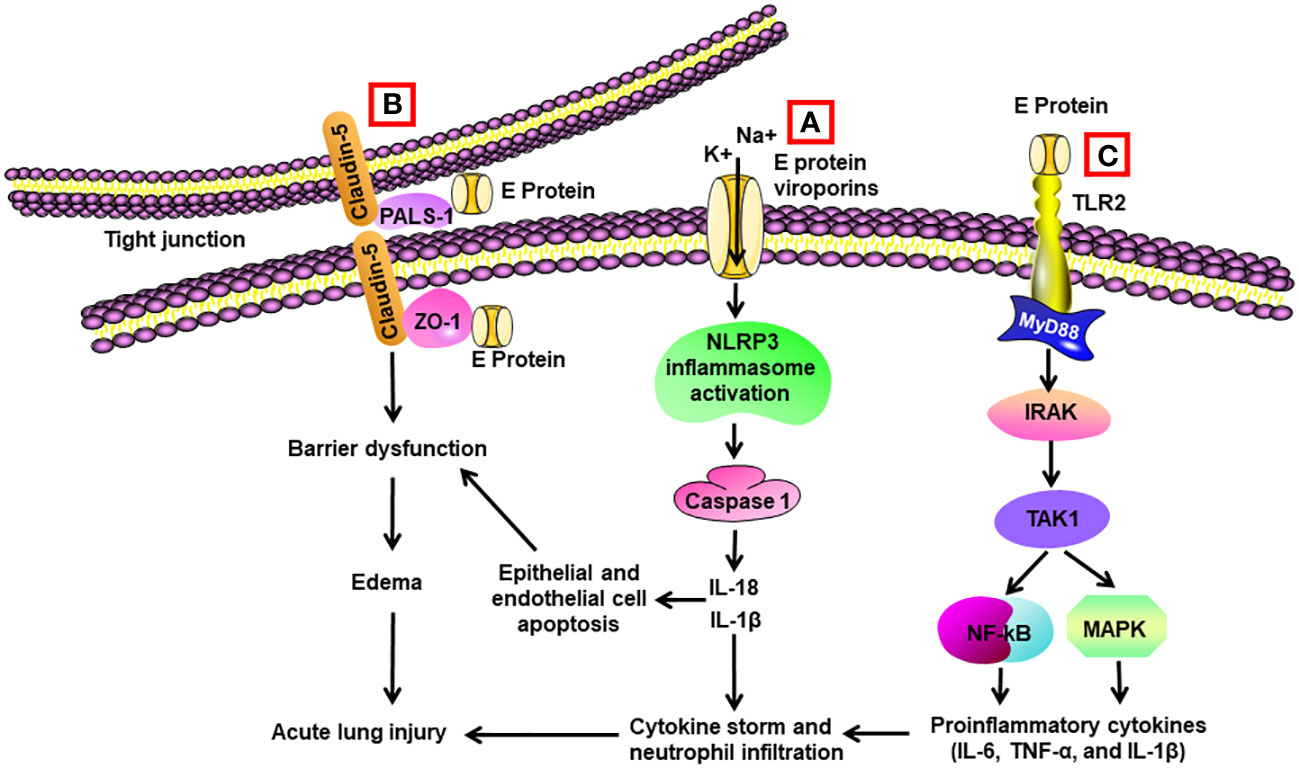
Frontiers Multifaceted role of SARS-CoV-2 structural proteins in

Mechanisms for the nonantibiotic activities of minocycline and
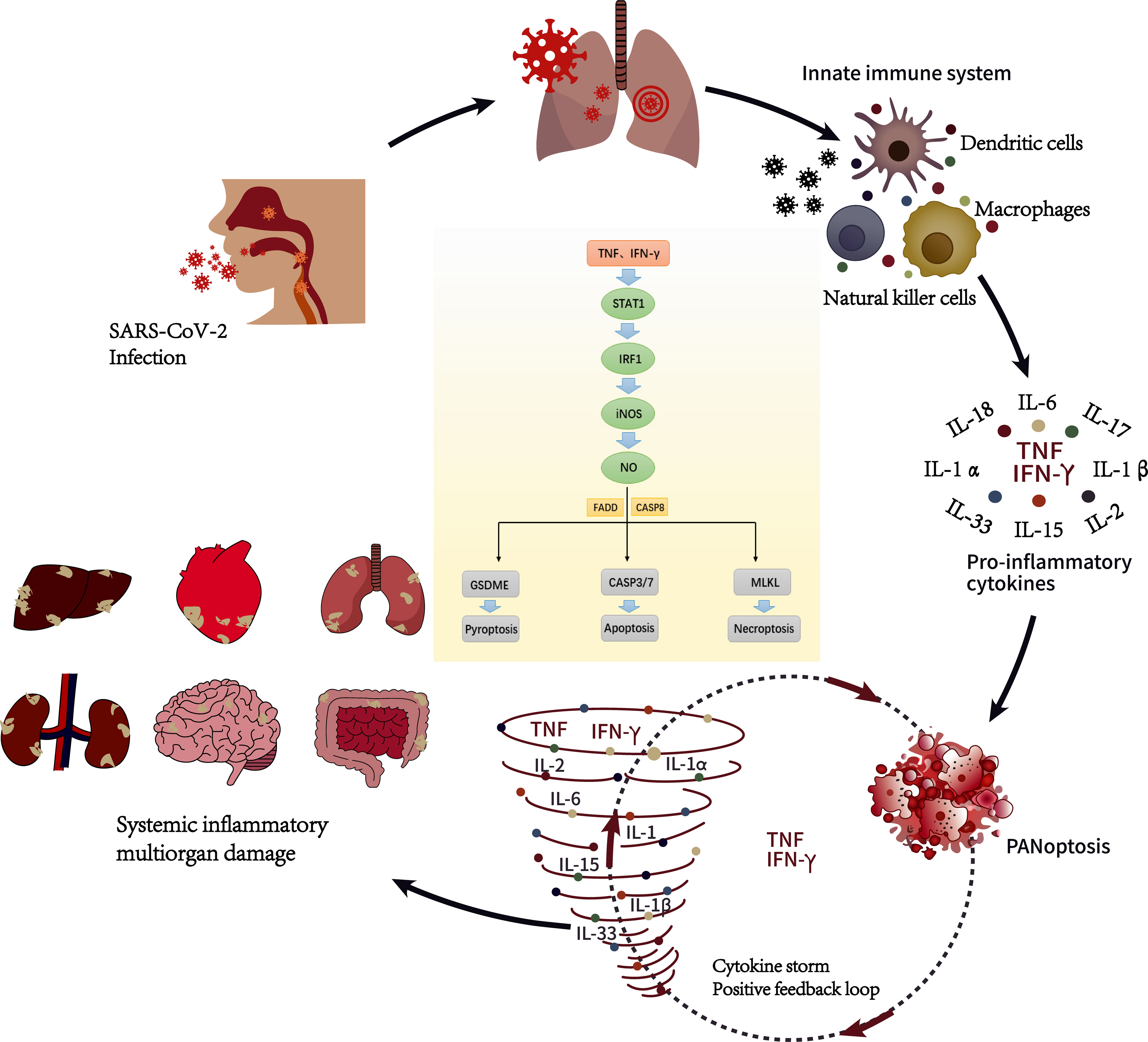
Frontiers Immune response induced by novel coronavirus infection
SARS-CoV-2 spike protein promotes IL-6 trans-signaling by activation of angiotensin II receptor signaling in epithelial cells

Type I interferons: crucial participants in disease amplification
